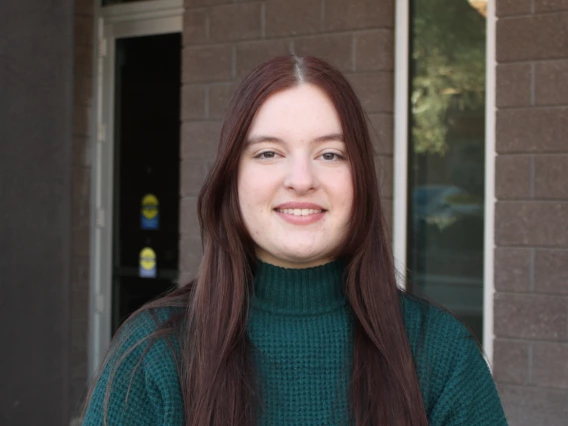
Engaging community to develop and implement a theory-based, empirically driven model for the collective practice of kindness.
The science is clear - kindness is vital for human health and well-being.
Kindness is communicated in interpersonal interactions, through organizational leadership, policies, practice, and even built environments. But as much as we want to be kind as individuals, organizations, and communities, we often struggle to communicate kindness consistently.
SciKind aims to contribute to the creation of a community of practice to increase kind behavior for the benefit of all.
Community of Practice
A group of people who share a concern or a passion for what they do and learn how to do it better as they interact regularly.
(Wenger, McDermott, & Snyder, 2002)
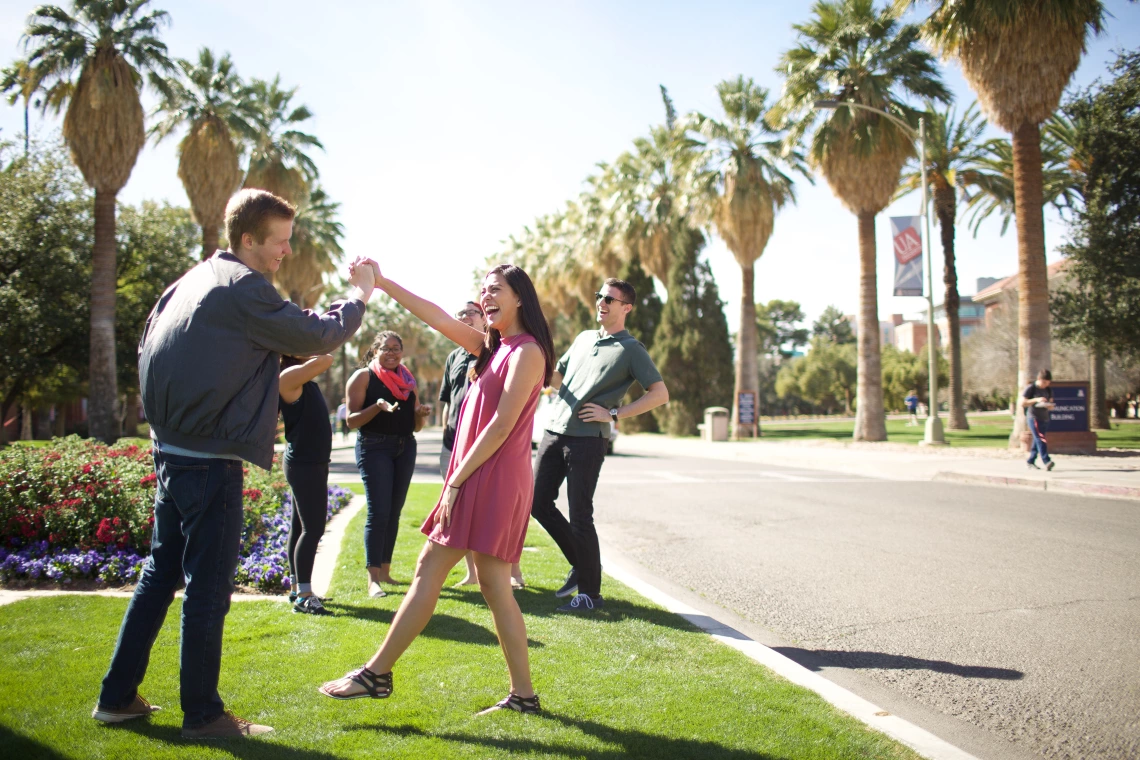
Kindness plays a key role in human health and well-being, whether in our personal lives, schools, or workplaces. Experiencing kindness creates positive social connections, which are essential for human development, health, and longevity. In organizations, kindness benefits everyone involved—consumers, employees, and the organization itself. Consumers who experience kindness tend to have better outcomes, while employees in kind work environments are more satisfied and engaged in their jobs.
Despite the well-known benefits of kindness in personal relationships, organizations, schools, and communities, there is still a pressing need to increase kind behavior. Research highlights the importance of developing a model that implements theory-based, evidence-driven strategies to promote kindness effectively.
Why Kindness?
Kindness improves interactions and strengthens relationships. Research shows that it benefits the person who receives it, the one who shows it, and even those who witness it. Kind acts increase feelings of similarity, promote cooperation, and reduce anxiety and loneliness for both the giver and receiver. Kindness can also trigger positive emotions like happiness, which encourages more kindness. Whether directed toward close friends, strangers, oneself, or observed, kindness leads to greater happiness. In groups and organizations, it helps create a positive and supportive environment that fosters better teamwork, increased productivity, and higher job satisfaction.
Researchers are also studying how kindness affects physical health by influencing the body’s physiological responses. As a social species, humans rely on communication, cooperation, and connection to meet essential needs. Positive social interactions from kindness activate the brain’s reward system and reduce stress. Feeling valued, cared for, and connected creates a sense of safety, which lowers stress and improves health. Studies show that kindness reduces inflammation, boosts the immune system, and can contribute to longer life expectancy. In environments where kindness is common, people trust and support each other, reducing stress and improving both mental and physical well-being. Happier, healthier people are more likely to engage in kind behaviors, creating a positive cycle.
Resources
Bedari Kindness Institute, UCLA. kindness.ucla.edu
Ben’s Bells Project. Bensbells.org
Beryl Institute. (2023). Defining patient and human experience. The Beryl Institute. https://berylinstitute.org
Center for Character & Citizenship. (University of Missouri-St. Louis—College of Education). www.characterandcitizenship.org
Center for Compassion and Altruism Research and Education (Stanford School of Medicine). www.ccare.stanford.edu
Center for Healthy Minds, University of Wisconsin. https://centerhealthyminds.org/
Greater Good: Science of a Meaningful Life. https://greatergood.berkeley.edu/
Healthy People 2020. Washington, DC: U.S. Department of Health and Human Services, Office of Disease Prevention and Health Promotion. https://www.healthypeople.gov/2020/
Kindness UK. https://kindnessuk.com/
Making Caring Common Project. (Harvard University, Graduate School of Education). http://mcc.gse.harvard.edu/
National School Climate Center. (n.d.). School Climate section. https://schoolclimate.org/school-climate/
Aarons, G.A., Wells, R.S., Zagursky, K., Fettes, D.L., & Palinkas, L.A. (2009). Implementing evidence-based practice in community mental health agencies: A multiple stakeholder analysis. American Journal of Public Health, 99(11), 2087–2095. https://doi.org/10.2105/AJPH.2009.161711
Birken, S.A., Rohweder, C.L., Powell, B.J., Shea, C.M., Scott, J., Leeman, J., ... & Presseau, J. (2018). T-CaST: An implementation theory comparison and selection tool. Implementation Science, 13, 1-10. https://doi.org/10.1186/s13012-018-0836-4
Bronfenbrenner, U. (1977). Toward an experimental ecology of human development. American Psychologist, 32(7), 513–531. https://doi.org/10.1037/0003-066X.32.7.513
Gitlin, L.N. (2013). Introducing a new intervention: An overview of research phases and common challenges. American Journal of Occupational Therapy, 67(2), 177–184. https://doi.org/10.5014/ajot.2013.006742
Golden, S., & Earp, J. (2012). Social ecological approaches to individuals and their contexts: Twenty years of health education and behavior health promotion interventions. Health Education & Behavior, 39(3), 364–372. https://doi.org/10.1177/1090198111418634
McLeroy, K., Bibeau, D., Steckler, A., & Glanz, K. (1988). An ecological perspective on health promotion programs. Health Education Quarterly, 15(4), 351–377. https://doi.org/10.1177/109019818801500401
Sallis, J. (2018). Needs and challenges related to multilevel interventions: Physical activity examples. Health Education and Behavior, 45(5), 661–667. https://doi.org/10.1177/1090198118796458
Kane, M., & Rosas, S. (2018). Conversations about group concept mapping: Applications, examples, and enhancements. Sage.
Kane, M., & Trochim, W.M. (2007). Concept mapping for planning and evaluation, Vol. 50, Sage.
Rising, K.L., LaNoue, M., Gentsch, A.T., Doty, A.M., Cunningham, A., Carr, B.G., ... & Mills, G. (2019). The power of the group: Comparison of interviews and group concept mapping for identifying patient-important outcomes of care. BMC Medical Research Methodology, 19, 1–9. https://doi.org/10.1186/s12874-018-0656-x
Rosas, S.R., & Camphausen, L.C. (2007). The use of concept mapping for scale development and validation in evaluation. Evaluation and Program Planning, 30(2), 125–135. https://doi.org/10.1016/j.evalprogplan.2007.01.003
Rosas, S.R., & Kane, M. (2012). Quality and rigor of the concept mapping methodology: A pooled study analysis. Evaluation and program planning, 35(2), 236–245. https://doi.org/10.1016/j.evalprogplan.2011.10.003
Trochim, W.M., Milstein, B., Wood, B.J., Jackson, S., & Pressler, V. (2004). Setting objectives for community and systems change: An application of concept mapping for planning a statewide health improvement initiative. Health promotion practice, 5(1), 8–19. https://doi.org/10.1177/1524839903258020
Westergren, A., Edfors, E., Norberg, E., Stubbendorff, A., Hedin, G., Wetterstrand, M., ... & Hagell, P. (2018). Computer-based training in eating and nutrition facilitates person-centered hospital care: A group concept mapping study. CIN: Computers, Informatics, Nursing, 36(4), 199–207. http://doi.org/10.1097/CIN.0000000000000416
Yonas, M., Zuberi, A., Kasunic, A., Bamwine, P., Boddie, S., Tharp-Gilliam, S., ... Wallace, J. (2017). Using concept mapping to explore and engage parent and youth residents of an economically underserved minority community around children's asthma. Progress in Community Health Partnerships: Research, Education, and Action 11(4), 333–345. https://doi.org/10.1353/cpr.2017.0041
Ajzen, I. (1991). The theory of planned behavior. Organizational Behavior and Human Decision Processes, 50(2), 179–211. https://doi.org/10.1016/0749-5978(91)90020-T
Ajzen, I., & Albarracín, D. (2007). Predicting and changing behavior: A reasoned action approach. In I. Ajzen, D. Albarracín, & R. Hornik (Eds.), Prediction and change of health behavior: Applying the reasoned action approach (pp. 3–21). Lawrence Erlbaum Associates.
Ajzen, I., & Fishbein, M. (1980). Understanding attitudes and predicting social behavior. Prentice-Hall.
Armitage, C. (2005). Can the theory of planned behavior predict the maintenance of physical activity? Health Psychology, 24(3), 235–245. https://doi.org/10.1037/0278-6133.24.3.235
Armitage, C., & Connor, M. (2001). Efficacy of the theory of planned behavior: A meta-analytic review. British Journal of Social Psychology, 40, 471-499.
Bem, D. J., & Allen, A. (1974). On predicting some of the people some of the time: The search for cross-situational consistencies in behavior. Psychological review, 81(6), 506. https://doi.org/10.1037/h0037130
Fishbein, M., & Ajzen, I. (2010). Predicting and changing behavior: The reasoned action approach. Psychology Press.
Jimmieson, N., Peach, M., & White, K. (2008). Utilizing the theory of planned behavior to inform change management: An investigation of employee intentions to support organizational change. Journal of Applied Behavioral Sciences, 44(2), 237–262. https://doi.org/10.1177/0021886307312773
Lueck, J., & Spiers, A. (2020). Which beliefs predict intention to get vaccinated against COVID-19? A mixed-methods reasoned action approach applied to health communication. Journal of Health Communication, 25(10), 790–798. https://doi.org/10.1080/10810730.2020.1865488
Lukacena, K., Reynolds-Tylus, T., & Quick, B. (2019). An application of the reasoned action approach to bystander intervention for sexual assault. Health Communication, 34(1), 46–53. https://doi.org/10.1080/10410236.2017.1384356
McEachan, R., Taylor, N., Harrison, R., Lawton, R., Gardner, P., & Conner, M. (2016). Meta-analysis of the reasoned action approach (RAA) to understanding health behaviors. Annals of Behavioral Medicine, 50(4), 592–612. https://doi.org/10.1007/s12160-016-9798-4
Middlestadt, S. (2007). What is the behavior? Strategies for selecting the behavior to be addressed by health promotion interventions. In I. Ajzen, D. Albarracín, & R. Hornik (Eds.), Prediction and change of health behavior (pp. 129–147). Lawrence Erlbaum Associates.
Smith J., Terry, D., Manstead, A., Louis, W., Kotterman, D., & Wolfs, J. (2008). The attitude-behavior relationship in consumer conduct: The role of norms, past behavior, and self-identity. The Journal of Social Psychology, 148(3), 311–333. https://doi.org/10.3200/SOCP.148.3.311-334
Steinmetz, H., Knappstein, M., Ajzen, I., Schmidt, P., & Kabst, R. (2016). How effective are behavior change interventions based on the theory of planned behavior? Zeitschrift für Psychologie, 224(3). https://doi.org/10.1027/2151-2604/a000255
Yzer, M. C. (2013). Reasoned action theory. In J. P. Dillard & L. Shen (Eds.), The SAGE handbook of persuasion: Developments in theory and practice (2nd ed., pp. 120–136). Sage.
Yzer, M., Weisman, S., Mejia, N., Hennrikus, D., Choi, K., & DeSimone, S. (2015). Informing tobacco cessation benefit use interventions for unionized blue-collar workers: A mixed methods reasoned action approach. Prevention Science, 16(6), 811–821. https://doi.org/10.1007/s11121-015-0566-7
Aknin, L.B., Dunn, E.W., & Norton, M.I. (2012). Happiness runs in a circular motion: Evidence for a positive feedback loop between prosocial spending and happiness. Journal of Happiness Studies, 13, 347–355. https://doi.org/10.1007/s10902-011-9267-5
Allen, M. (2022). Kindness as an imperative. In Kindness in management and organizational studies (pp. 59–74). Emerald Publishing Limited.
Axelrod, R. (1984). The evolution of cooperation. Basic Books.
Ballatt, J., Campling, P., & Maloney, C. (2020). Intelligent kindness: Rehabilitating the welfare state. Cambridge University Press.
Balliet, D., Wu, J., & De Dreu, C. K.W. (2014). Ingroup favoritism in cooperation: A meta-analysis. Psychological Bulletin, 140(6), 1556–1581. http://doi.org/10.1037/a0037737
Barclay, P. (2011). The evolution of charitable behaviour and the power of reputation. In S. C. Roberts (Ed.). Applied evolutionary psychology. Oxford University Press.
Barsade, S.G., & O’Neill, O.A. (2014). What’s love got to do with it? A longitudinal study of the culture of compassionate love and employee and client outcomes in the long-term care setting. Administrative Science Quarterly, 59, 551–598. https://doi.org/10.1177/0001839214538636
Baumeister, R., & Leary, M. (1995). The need to belong: Desire for interpersonal attachments as a fundamental human motivation. Psychological Bulletin, 117(3), 497-529.
Baumsteiger, R., & Siegel, J. T. (2018). Measuring prosociality: The development of a prosocial behavioral intentions scale. Journal of Personality Assessment, 101(3), 305–314. https://doi.org/10.1080/00223891.2017.1411918
Bezrukova, K., Spell, C., Perry, J., & Jehn, K. (2016). A meta-analytical integration of over 40 years of research on diversity training evaluation. Psychological Bulletin, 142, 1227–1274. https://doi.org /10.1037/bul0000067
Bierhoff, H. W. (2005). The psychology of compassion and prosocial behaviour. In P. Gilbert (Ed.), Compassion: Conceptualisations, research and use in psychotherapy (pp. 148–167). Routledge.
Binfet, J.T., & Gaertner, A. (2015). Children’s conceptualizations of kindness at school. Canadian Children, 40(3), 27–40.
Boissy, A., & Gilligan, T. (2016). Communication the Cleveland Clinic way: How to drive a relationship-centered strategy for superior patient experience. McGraw Hill Education.
Bonvicini, K.A., Perlin, M.J., Bylund, C.L., Carroll, G., Rouse, R.A., & Goldstein, M.G. (2009). Impact of communication training on physician expression of empathy in patient encounters. Patient education and counseling, 75(1), 3–10. https://doi.org/10.1016/j.pec.2008.09.007
Boos, M., Kolbe, M., Kappeler, P. M., & Ellwart, T. (Eds.). (2011). Coordination in human and primate groups. Springer.
Bowling, N.A., Beehr, T.A., Swader, W.M. (2005). Giving and receiving social support at work: The roles of personality and reciprocity. Journal of Vocational Behavior, 67(3), 476–489. https://doi.org/10.1016/j.jvb.2004.08.004
Brown, S.L., & Brown, R.M. (2015). Connecting prosocial behavior to improved physical health: Contributions from the neurobiology of parenting. Neuroscience and Biobehavioral Reviews, 55, 1–17. https://doi.org/10.1016/j.neubiorev.2015.04.004
Cacioppo, J., & Patrick, W. (2008). Loneliness: Human nature and the need for social connection. W.W. Norton.
Caldwell, C. (2017). Understanding kindness–A moral duty of human resource leaders. The Journal of Values-Based Leadership, 10(2), 8. https://doi.org/10.22543/0733.102.1188
Campling, P. (2015). Reforming the culture of healthcare: The case for intelligent kindness. BJPsych Bulletin, 39(1), 1–5. https://doi.org/10.1192/pb.bp.114.047449
Canter, D., Youngs, D., & Yaneva, M. (2017). Towards a measure of kindness: An exploration of a neglected interpersonal trait. Personality and Individual Differences, 106, 15–20. https://doi.org/10.1016/j.paid.2016.10.019
Cargile, A., & Giles, H. (1996). Intercultural communication training: Review, critique, and a new theoretical framework. Annals of the International Communication Association, 19:1, 385–404, https://doi.org/10.1080/23808985.1996.11678936
Carr, D.C., Kail, B.L., Matz-Costa, C., & Shavit, Y.Z. (2018). Does becoming a volunteer attenuate loneliness among recently widowed older adults? Journal of Gerontology, 73(3), 501–510. https://doi.org/10.1093/geronb/gbx092
Cech, E.A., & O’Connor, L.T. (2017). ‘Like second-hand smoke’: The toxic effect of workplace flexibility bias for workers’ health. Community, Work & Family, 20(5), 543–572. https://doi.org/10.1080/13668803.2017.1371673
Chancellor, J., Margolis, S., & Lyubomirsky, S. (2018). The propagation of everyday prosociality in the workplace. The Journal of Positive Psychology, 13(3), 271–283. https://doi.org/10.1080/17439760.2016.1257055
Clegg, S., & Rowland, S. (2010). Kindness in pedagogical practice and academic life. British Journal of Sociology of Education, 31(6), 719–735. https://doi.org/10.1080/01425692.2010.515102
Cochrane, B., Ritchie, D., Lockhard, D., Picciano, G., King, J., & Nelson, B. (2019). A culture of compassion: How timeless principles of kindness and empathy become powerful tools for confronting today’s most pressing healthcare challenges. Healthcare Management Forum, 32(3), 120–127. https://doi.org /10.1177/0840470419836240
Cohen, S., & Wills, T.A. (1985). Stress, social support, and the buffering hypothesis. Psychological Bulletin, 98, 310–357. https://doi.org/10.1037/0033-2909.98.2.310
Coller, K.E. (2022). Choosing kindness: Finding kindness in management and organization studies. In Kindness in Management and Organizational Studies (pp. 13–27). Emerald Publishing Limited.
Cosmides, L., & Tooby, J. (2005). Neurocognitive adaptations designed for social exchange. In D. M. Buss (Ed.). The handbook of evolutionary psychology (pp. 584–627). Wiley.
Curry, O.S., Rowland, L.A., Van Lissa, C.J., Zlotowitz, S., McAlaney, J., & Whitehouse, H. (2018). Happy to help? A systematic review and meta-analysis of the effects of performing acts of kindness on the well-being of the actor. Journal of Experimental Social Psychology, 76, 320–329. https://doi.org/10.1016/j.jesp.2018.02.014
Davis, L. (2013). Dignity health survey finds majority of Americans rate kindness as top factor in quality health care. News release, November 13, 2013.
Delton, A.W., Krasnow, M.M., Cosmides, L., & Tooby, J. (2011). Evolution of direct reciprocity under uncertainty can explain human generosity in one-shot encounters. Proceedings of the National Academy of Sciences of the United States of America, 108(32), 13335–13340. http://doi.org/10.1073/pnas.1102131108
Dreachslin, J., Gilbert, M., & Malone, B. (2012). Diversity and cultural competence in health care: A systems approach. John Wiley & Sons.
Egbert, L. D., Battit, G. E., Welch, C. E., & Bartlett, M. K. (1964). Reduction of postoperative pain by encouragement and instruction of patients: A study of doctor-patient rapport. New England Journal of Medicine, 270, 825–827. https://doi.org/10.1056/NEJM196404162701606
Eisenberg, N. (1986). Altruistic emotion, cognition and behavior. Erlbaum.
Eisenberg, N. (2006). Empathy‐related responding and prosocial behaviour. In Empathy and fairness: Novartis Foundation Symposium 278 (pp. 71–88). John Wiley & Sons, Ltd.
Eisenberg, N., VanSchyndel, S. K., & Spinrad, T. L. (2016). Prosocial motivation: Inferences from an opaque body of work. Child Development, 87(6), 1668–1678. https://doi.org/10.1111/cdev.12638
Eisenberger, N.I., & Cole, S.W. (2012). Social neuroscience and health: Neurophysiological mechanisms linking social ties with physical health. Nature Neuroscience, 15, 669–674. https://doi.org/10.1038/nn.3086
Epstein, R., & Street Jr., R. (2007). Patient-centered communication in cancer care: Promoting healing and reducing suffering. National Cancer Institute, 7, 6225. https://doi.org/10.1037/e481972008-001
Faust, H. (2009). Kindness, not compassion, in healthcare. Cambridge Quarterly of Healthcare Ethics, 18(3), 287–299. https://doi.org/10.1017/S0963180109090458
Fritz, M., Walsh, L., Cole, S., Epel, E., & Lyubomirsky, S. (2021). Kindness and cellular aging: A pre-registered experiment testing the effects of prosocial behavior on telomere length and well-being. Brain, Behavior, & Immunity – Health, 11, 1–9. https://doi.org/10.1016/j.bbih.2020.100187
Fryburg, D.A. (2022). Kindness as a stress reduction-health promotion intervention: A review of the psychobiology of caring. American Journal of Lifestyle Medicine, 16, 89–100. https://doi.org/10.1177/1559827620988268
Funder, D.C. (2008). Persons, situations, and person-situation interactions. In O. P. John, R. W. Robins, & L. A. Pervin (Eds.), Handbook of personality: Theory and research (pp. 568–580). The Guilford Press.
Gallois, C., Watson, B., & Giles, H. (2018). Intergroup communication: Identities and effective interactions. Journal of Communication, 68, 309–317. https://doi:10.1093/joc/jqx016
Garcia, C.d.L., Abreu, L.C.d., Ramos, J.L.S., Castro, C.F.D.d, Smiderle, F.R.N., Santos, J.A.d., Bezerra, IMP. (2019). Influence of burnout on patient safety: Systematic review and meta-analysis. Medicina, 55, 553. https://doi.org/10.3390/medicina55090553
Gibb, S., & Rahman, S. (2018). Kindness among colleagues; identifying and exploring the gaps in employment contexts. International Journal of Organizational Analysis, 27(3), 582–595. https://doi.org/10.1108/IJOA-02-2018-1357
Gilbert, P. (2017). Compassion: Definitions and controversies. In P. Gilbert (Ed.), Compassion: Concepts, research and applications (pp. 3–15). Routledge.
Gintis, H., Smith, E.A., & Bowles, S. (2001). Costly signaling and cooperation. Journal of Theoretical Biology, 213, 103–119. http://doi.org/10.1006/jtbi.2001.2406
Goetz, J.L., Keltner, D., & Simon-Thomas, E. (2010). Compassion: An evolutionary analysis and empirical review. Psychological Bulletin, 136(3), 351. http://doi.org/10.1037/a0018807
Graziano, W.G., Habashi, M.M., Sheese, B.E., & Tobin, R.M. (2007). Agreeableness, empathy, and helping: A person × situation perspective. Journal of Personality and Social Psychology, 93(4), 583–599. https://doi.org/10.1037/0022-3514.93.4.583
Gudykunst, W. B. (Ed.). (1986). Intergroup communication. Edward Arnold.
Hake, A., & Post, S. (2023). Kindness: Definitions and a pilot study for the development of a kindness scale in healthcare. PLoS ONE, 18(7), 1-11. https://doi.org/10.1371/journal.pone.0288766
Hamilton, W.D. (1964). The genetical evolution of social behaviour. Journal of Theoretical Biology, 7(1–16), 17–52. http://doi.org/10.1016/0022-5193(64)90039-6
Hamlin, J.K., Wynn, K., & Bloom, P. (2007). Social evaluation by preverbal infants. Nature, 450(7169), 557–559. https://doi.org/10.1038/nature06288
Hammerstein, P. (Ed.). (2003). Genetic and cultural evolution of cooperation. MIT Press.
Hamrick, W. (2002). Kindness and the good society: Connections of the heart. State University of New York Press.
Harcourt, A., & Waal, F.B.M. (1992). In A. Harcourt (Ed.). Coalitions and alliances in humans and other animals. Oxford University Press.
Harding K. (2019). The rabbit effect: Live longer, happier, and healthier with the groundbreaking science of kindness. Atria Books.
Hardy, C.L., & Van Vugt, M. (2006). Nice guys finish first: The competitive altruism hypothesis. Personality and Social Psychology Bulletin, 32(10), 1402–1413. http://doi.org/10.1177/0146167206291006
Hardy, C.W., & Briffa, M. (Eds.). (2013). Animal contests. Cambridge University Press.
Hart, R., & Hart, D. (2023). Untying the text: Organizational prosociality and kindness. Behavioral Science, 13, 186. https://doi.org/10.3390/bs13020186
Haskins, G., Thomas, M., & Johri, L. (Eds.). (2018). Kindness in leadership. Routledge.
Hewett, D., Watson, B., Gallois, C., Ward, M., & Leggett, B. (2009). Intergroup communication between hospital doctors: Implications for quality of patient care. Social Science & Medicine, 69, 1732–1740. https://doi.org/10.1016/j.socscimed.2009.09.048
Holt-Lunstad, J. (2018). The potential public health relevance of social isolation and loneliness: Prevalence, epidemiology, and risk factors. Public Policy & Aging Report, 27(4), 127–130. https://doi.org/10.1093/ppar/prx030
Isaac, L. (2012). Defining health and health care disparities and examining disparities across the life span. In T. LaVeist & L. Isaac (Eds.), Race, ethnicity, and health: A public health reader (2nd ed., pp. 11–34). Jossey-Bass.
Johnson, M.T., Fratantoni, J.M., Tate, K., & Moran, A.S. (2022). Parenting with a kind mind: Exploring kindness as a potentiator for enhanced brain health. Frontiers in Psychology, 13, 1–9. https://doi.org/10.3389/fpsyg.2022.805748
Kalinoski, Z., Steele-Johnson, D., Peyton, E., Leas, K., Steinke, J., & Bowling, N. (2013). A meta-analytic evaluation of diversity training outcomes. Journal of Organizational Behavior, 34, 1076–1104. https://doi.org/10.1002/job.1839
Kaplan, D., deBlois, M., Dominguez, V., & Walsh, M. (2016). Studying the teaching of kindness: A conceptual model for evaluating kindness education programs in schools. Evaluation and Program Planning, 58, 160–170. http://doi.org/10.1016/j.evalprogplan.2016.06.001
Katz, D. (1964). The motivational basis of organizational behavior. Behavioral science, 9(2), 131–146. https://doi.org/10.1002/bs.3830090206
Keltner, D., Kogan, A., Piff, P.K., & Saturn, S.R. (2014). The sociocultural appraisals, values, and emotions (SAVE) framework of prosociality: Core processes from gene to meme. Annual Review of Psychology, 65, 425–460. https://doi.org/10.1146/annurevpsych-010213-115054
Kerr, S.L., O’Donovan, A., & Pepping, C.A. (2015). Can gratitude and kindness interventions enhance well-being in a clinical sample? Journal of Happiness Studies, 16, 17–36. https://doi.org/10.1007/s10902-013-9492-1
Knafo, A., & Israel, S. (2012). Empathy, prosocial behavior, and other aspects of kindness. Handbook of temperament, 168–179.
Kraft-Todd, G., Yoeli, E., Bhanot, S., & Rand, D. (2015). Promoting cooperation in the field. Current Opinion in Behavioral Sciences, 3, 96–101. http://doi.org/10.1016/j.cobeha.2015.02.006
Krasnow, M.M., Delton, A.W., Tooby, J., & Cosmides, L. (2013). Meeting now suggests we will meet again: Implications for debates on the evolution of cooperation. Scientific Reports, 3. http://doi.org/10.1038/srep01747
Kurtz, S.M., Silverman, J., & Draper, J. (2005). Teaching and learning communication skills in medicine. Radcliffe.
Latane, B., & Darley, J.M. (1968). Group inhibition of bystander intervention in emergencies. Journal of personality and social psychology, 10(3), 215. https://doi.org/10.1037/h0026570
Layous, K., Nelson, S.K., Kurtz, J.L., & Lyubomirsky, S. (2017). What triggers prosocial effort? A positive feedback loop between positive activities, kindness, and wellbeing. Journal of Positive Psychology, 12(4), 385–398. https://doi.org/10.1080/17439760.2016.1198924
Layous, K., Nelson, S.K., Oberle, E., Schonert-Reichl, K.A., & Lyubomirsky, S. (2012). Kindness counts: Prompting prosocial behavior in preadolescents boosts peer acceptance and well-being. PloS one, 7(12). https://doi.org/10.1371/journal.pone.0051380
Lieberman, D., Tooby, J., & Cosmides, L. (2007). The architecture of human kin detection. Nature, 445(7129), 727–731. http://doi.org/10.1038/Nature05510
Long, N.J. (1997). The therapeutic power of kindness. Reclaiming Children and Youth: Journal of Emotional and Behavioral Problems, 5(4), 242–46.
Lown, B.A., Rosen, J., & Marttila, J. (2011). An agenda for improving compassionate care: A survey shows about half of patients say such care is missing. Health Affairs, 30(9), 1772–1778. https://doi.org/10.1377/hlthaff.2011.0539
Lyubomirsky, S., King, L., & Diener, E. (2005). The benefits of frequent positive affect: Does happiness lead to success? Psychological bulletin, 131(6), 803. https://doi.org/10.1037/0033-2909.131.6.803
Maglalang, D., Katigbak, C., Gómez, M., Sorensen, G., Hopcia, K., Hashimoto, D., Pandey, S., Takeuchi, D., & Sabbath, E. (2021). Workplace discrimination and short sleep among healthcare workers: The buffering effect of people-oriented culture. Journal of Occupational and Environmental Medicine, 63, 857–864. https://doi.org/10.1097/JOM.0000000000002246
Malti, T. (2021). Kindness: A perspective from developmental psychology. European Journal of Developmental Psychology, 18(5), 629–657. https://doi.org/10.1080/17405629.2020.1837617
Manary, M. P., Boulding, W., Staelin, R., & Glickman, S. W. (2013). The patient experience and health outcomes. The New England Journal of Medicine, 368(3), 201–203. https://doi.org/10.1056/NEJMp1211775
Mateo, J.M. (2015). Perspectives: Hamilton's legacy: Mechanisms of kin recognition in humans. Ethology: formerly Zeitschrift fur Tierpsychologie, 121(5), 419–427. http://doi.org/10.1111/eth.12358
McGrath, R. (2015). Character strengths in 75 nations: An update. The Journal of Positive Psychology, 10, 41–52. http://doi.org/10.1080/17439760.2014.888580
Murray, C., & Gill, A. (2018). Kindness in leadership in UK private and public sector organisations. In Kindness in leadership (pp. 48–66). Routledge.
Murthy, V. (2020). Together: The healing power of human connection in a sometimes lonely world. Harper Wave.
Ong, L., De Haes, J., Hoos, A., & Lammes, F. (1995). Doctor-patient communication: A review of the literature. Social Science Medicine, 40(7), 903–918. https://doi.org/10.1016/0277-9536(94)00155-M
Oppel, E.M.., & Mohr, D.C. (2020). “Paying it forward”: The link between providers’ civility climate, civility toward patients and patient experience outcomes. Health Care Management, 45, 141–150. https://doi.org/10.1097/HMR.0000000000000209
Otake, K., Shimai, S., Tanaka-Matsumi, J., Otsui, K., & Fredrickson, B. L. (2006). Happy people become happier through kindness: A counting kindnesses intervention. Journal of Happiness Studies, 7(3), 361–375. http://doi.org/10.1007/s10902-005-3650-z
Oveis, C., Horberg, E.J., & Keltner, D. (2010). Compassion, pride, and social intuitions of self-other similarity. Journal of Personality and Social Psychology, 98(4), 618–630. https://doi.org/10.1037/a0017628
Padilla, T. (2017). Kindness: At the center of patient experience strategies. Foundation of the American College of Healthcare Executives, 62(4), 229–233. https://doi.com/10.1097/JHM-D-17-00083
Paluck E. (2006). Diversity training and intergroup contact: A call to action research. Journal of Social Issues, 62, 577–595. https://doi.org/10.1111/j.1540-4560.2006.00474.x
Paluck, E., & Green, D. (2009). Prejudice reduction: What works? A critical look at evidence from the field and the laboratory. Annual Review of Psychology, 60, 339–367. https://doi.org/ 10.1146/annurev.psych.60.110707.163607
Paluck, E., Porat, R., Clark, C., & Green, D. (2021). Prejudice reduction: Progress and challenges. Annual Review of Psychology, 72, 533–560. https://doi.org/10.1146/annurev-psych-071620-030619
Pendry, L., Driscoll, D., & Field, S. (2007). Diversity training: Putting theory into practice. Journal of Occupational and Organizational Psychology, 80, 27–50. https://doi.org/10.1348/096317906X118397
Penner, L.A., & Finkelstein, M.A. (1998). Dispositional and structural determinants of volunteerism. Journal of Personality and Social Psychology, 74(2), 525–537. https://doi.org/10.1037/0022-3514.74.2.525
Penner, L.A., & Orom, H. (2010). Enduring goodness: A person-by-situation perspective on prosocial behavior. In M. Mikulincer & P. R. Shaver (Eds.), Prosocial motives, emotions, and behavior: The better angels of our nature (pp. 55–72). American Psychological Association. https://doi.org/10.1037/12061-003
Peterson, C. & Seligman, M.E. (2004). Character strengths and virtues: A handbook and classification. Oxford Press.
Phillips, A., & Taylor, B. (2009). On kindness. Farrar, Straus and Giroux.
Raihani, N.J., & Bshary, R. (2015). Why humans might help strangers. Frontiers in Behavioral Neuroscience, 9(39). http://doi.org/10.3389/fnbeh.2015.00039
Raihani, N.J., & Smith, S. (2015). Competitive helping in online giving. Current Biology, 25(9), 1183–1186. http://doi.org/10.1016/j.cub.2015.02.042
Rosenbaum, M.E., & Axelson, R. (2013). Curricular disconnects in learning communication skills: What and how students learn about communication during clinical clerkships. Patient Education and Counseling, 1, 85–90. https://doi.org/10.1016/j.pec.2012.10.011
Rotthoff, T., Baehring, T., David, D., Bartnick, C., Linde, F., Willers, R., Schafer, R., & Scherbaum, W. (2011). The value of training in communication skills for continuing medical education. Patient Education and Counseling, 84, 170–175. https://doi.org/10.1016/j.pec.2010.07.034
Rowland, L., & Curry, O. (2019). A range of kindness activities boost happiness. The Journal of Social Psychology, 159(3), 340–343. https://doi.org/10.1080/00224545.2018.1469461
Saslaw, M., Sirota, D., Jones, D., Rosenbaum, M. & Kaplan, S. (2017). Effects of a hospital-wide physician communication skills training workshop on self-efficacy, attitudes and behavior. Patient Experience Journal, 4(3), 48–54. https://doi.org/10.35680/2372-0247.1230
Schumann, K., Zaki, J., & Dweck, C. (2014). Addressing the empathy deficit: Beliefs about the malleability of empathy predict effortful responses when empathy is challenging. Journal of Personality and Social Psychology, 107(3), 475–493. http://doi.org/10.1037/a0036738
Shanafelt, T. D. (2009). Enhancing the meaning of work: A prescription for preventing physician burnout and promoting patient-centered care. The Journal of the American Medical Association, 302, 1338–1340. https://doi.org/10.1001/jama.2009.1385
Shanafelt, T.D., & Noseworthy, J.H. (2017). Executive leadership and physician well-being: Nine organizational strategies to promote engagement and reduce burnout. Mayo Clinic Proceedings, 92, 129–146. https://doi.org/10.1016/j.mayocp.2016.10.004
Shilling, V., Jenkins, V., & Fallowfield, L. (2003). Factors affecting patient and clinician satisfaction with the clinical consultation: Can communication skills training for clinicians improve satisfaction?. Psycho‐Oncology: Journal of the Psychological, Social and Behavioral Dimensions of Cancer, 12(6), 599–611. https://doi.org/10.1002/pon.731
Shor, E., & Roelfs, D.J. (2015). Social contact frequency and all-cause mortality: A meta-analysis and metaregression. Social Science & Medicine, 128, 76–86. https://doi.org/10.1016/j.socscimed.2015.01.010
Silverman, J. (2011). Clinical communication training in continuing medical education: Possible, do-able and done? Patient Education and Counseling, 84, 141–142. https://doi.org/10.1016/j.pec.2011.05.026
Smith, C.A., Organ, D.W., & Near, J.P. (1983). Organizational citizenship behavior: Its nature and antecedents. Journal of Applied Psychology, 68(4), 653–663. https://doi.org/10.1037/0021-9010.68.4.653
Smith, E.A., & Bleige Bird, R.L. (2000). Turtle hunting and tombstone opening: Public generosity as costly signaling. Evolution and Human Behavior, 21, 245–261. https://doi.org/10.1016/S1090-5138(00)00031-3
Street, R., Makoul, G., Arora, N., & Epstein, R. (2009). How does communication heal? Pathways linking clinician-patient communication to health outcomes. Patient Education and Counseling, 74, 295–301. https://doi.org/10.1016/j.pec.2008.11.015
Tajfel, H. (1978). Introduction. In H. Tajfel (Ed.), Differentiation between social groups: Studies in the social psychology of intergroup relations. Academic Press.
Tajfel, H., & Turner, J. (1986). The social identity theory of intergroup behavior. In S. Worchel, & W. Austin (Eds.), Psychology of intergroup relations (pp. 7–24). Nelson-Hall.
Thurlow, A. (2022). Communicating Kindness at Work. In Kindness in management and organizational studies (pp. 45–58). Emerald Publishing Limited.
Trivers, R.L. (1971). The evolution of reciprocal altruism. Quarterly Review of Biology, 46(1), 35–57. http://doi.org/10.1086/406755
Truong, M., Paradies, Y., & Priest, N. (2014). Interventions to improve cultural competency in healthcare: A systematic review of reviews. BMC Health Services Research, 14(1), 1–17. https://doi.org/10.1186/1472-6963-14-99
Trzeciak, S. & Mazzaarelli, A. (2019). Compassionomics: The revolutionary scientific evidence that caring makes a difference. Studer Group.
van den Eertwegh, V., van Dulmen, S., van Dalen, J., Scherpbier, A., van der Vleuten, C. (2013). Learning in context: Identifying gaps in research on the transfer of medical communication skills to the clinical workplace. Patient Education and Counseling, 90, 184–192. https://doi.org/ 10.1016/j.pec.2012.06.008
Wakefield, M.A., Loken, B., & Hornik, R.C. (2010). Use of mass media campaigns to change health behaviour. The Lancet, 376(9748), 1261–1271. https://doi.org10.1016/S0140-6736(10)60809-4
Wallerstein, N., & Duran, B. (2010). Community-based participatory research contributions to intervention research: The intersection of science and practice to improve health equity. American Journal of Public Health, 100(1), S40–S46. http://doi.org/10.2105/AJPH.;1;2009.184036
Watson, B., Gallois, C., Hewett, D., & Jones, L. (2012). Culture and health care: Intergroup communication and its consequences. In J. Jackson (Ed.), The Routledge handbook of language and intercultural communication (pp. 510–522). Routledge.
West, C., Dyrbye, L., Erwin, P., & Shanafelt, T. (2016). Interventions to prevent and reduce physician burnout: A systematic review and meta-analysis. The Lancet, 388(10057), 2272–2281. https://doi.org/10.1016/S0140-6736(16)31279-X
Whitehouse, H., & Lanman, J.A. (2014). The ties that bind us ritual, fusion, and identification. Current Anthropology, 55(6), 674–695. http://doi.org/10.1086/678698
Yao, M., Zhou, X., Xu, Z., Lehman, R., Haroon, S., Jackson, D. & Cheng, K. (2021). The impact of training healthcare professionals’ communication skills on the clinical area of diabetes and hypertension: A systematic review and meta-analysis. BMC Family Practice, 22(152), 1–23. https://doi.org/10.1186/s12875-021-01504-x
Zolnierck, K., & DiMatteo, M. R. (2009). Physician communication and patient adherence to treatment: A meta-analysis. Medical Care, 47, 826–834. https://doi.org/ 10.1097/MLR.0b013e31819a5acc
SciKind Team
The SciKind Team is working closely with university faculty, staff, and students, and with community members and organizations, to develop and implement a theory-based and empirically informed model that will guide a community-wide effort to create a culture of kindness learning and practice.
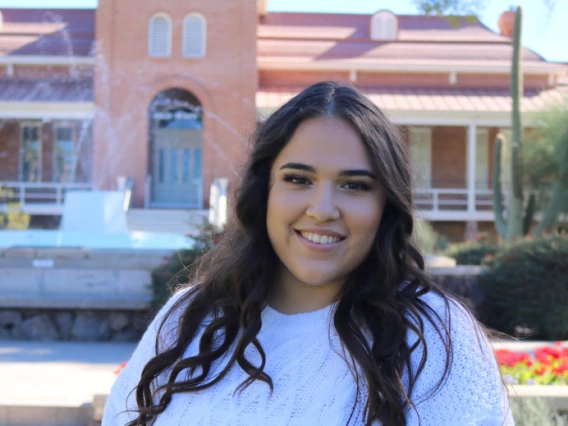
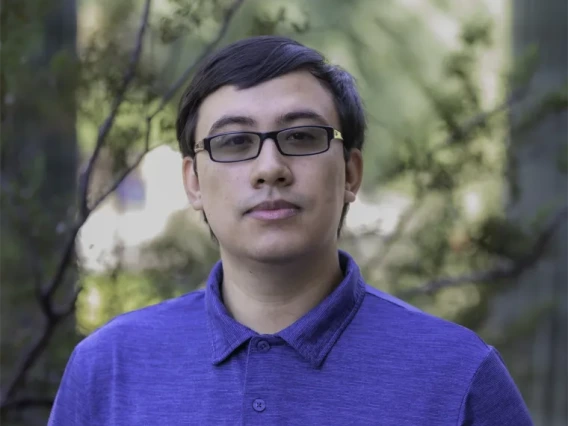


Science of Kindness VIP Research Team
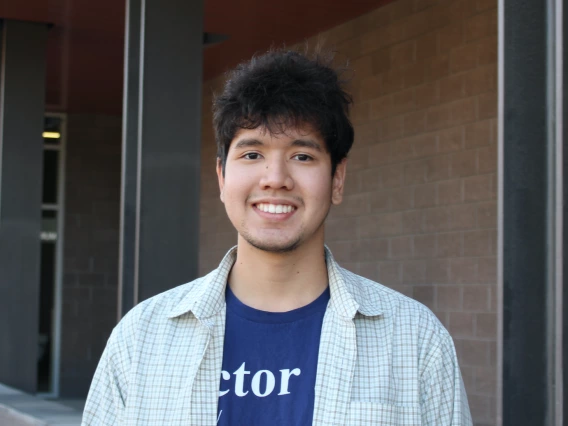

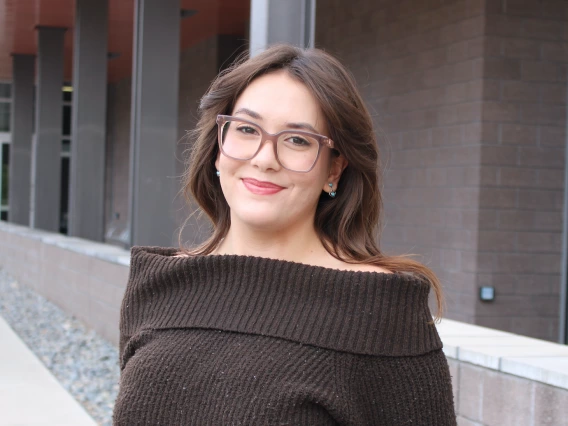
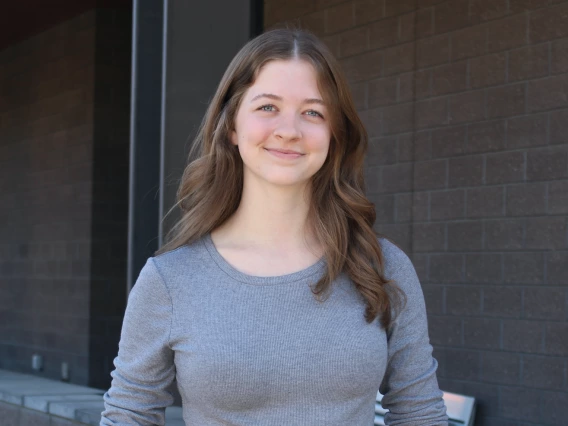
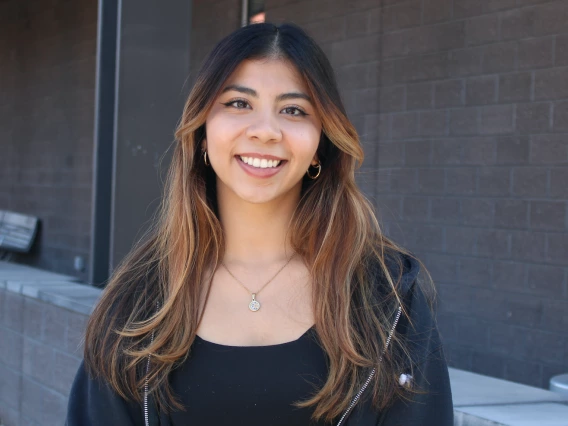

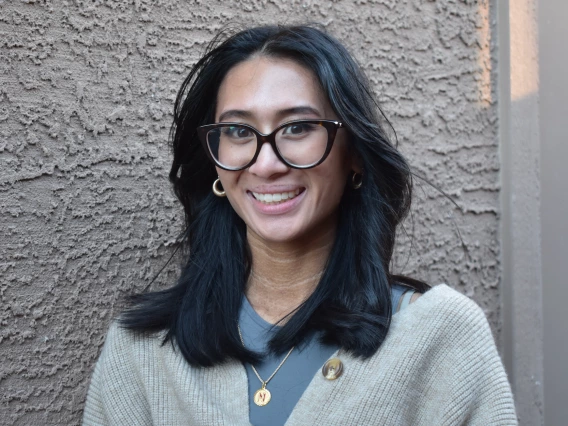
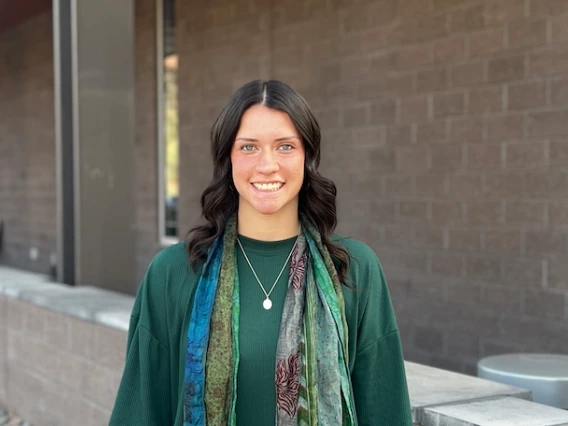
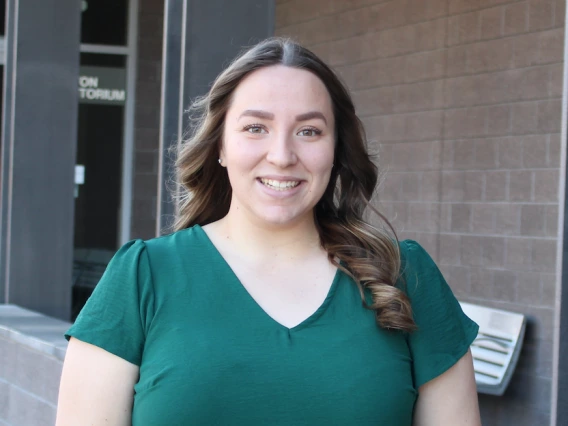


Maxima Neijmeijer
Undergraduate Research Assistant
Pronouns: she, her, hers
